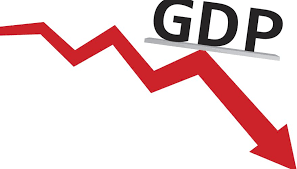HMRC umbrella company ‘checking tool’ looms for workers
Umbrella company consultation response and guidance due from HMRC, as more details come out on Tax Administration and...
READ MORE
Challenges abound for small firms, even though November’s GDP result is stronger than predicted, said the UK’s largest business organisations.

Official figures from the Office for National Statistics released last week show the economy expanded by 0.1 per cent in November 2022, helped by demand for services in the tech sector and in spite of households being squeezed by rising prices.
However, it is still unclear whether soaring costs will eventually tip the UK into recession.
Although the November reading of gross domestic product (GDP) — a measure of all the activity by businesses, the government and people in the UK — was much better than anticipated, the overall picture still suggests the economy is stagnating as food and energy bills go up and people cut back.
The November increase marks a slowdown from a 0.5 per cent rise in October, which was largely a result of a bounceback from businesses shuttering to mark Queen Elizabeth II’s funeral in September.
Economists have suggested that the latest data makes it less clear whether the UK will have entered a recession at the end of last year.
Federation of Small Businesses (FSB) national chair Martin McTague said the 0.1 per cent growth in November is encouraging, but the concerns that small businesses have over the economy’s direction of travel have not been laid to rest.
“With costs remaining high for small firms and households alike, policymakers cannot rest on their laurels. Inflation needs to be brought down, there remains huge uncertainty over energy prices, and consumer confidence remains stubbornly low,” he said.
“We’re hearing from small businesses who aren’t just worried for themselves and their own firms — they are worried for the future of their fellow local businesses, and the vibrancy of their community.
“The recently announced Energy Bill Discount Scheme will do little to stem these concerns. It is utterly inadequate given the scale of the challenge at hand, with countless small businesses teetering on the edge, and will likely see some firms forced to increase prices in April.
“The very last thing we need is accelerating closures of small businesses, leading to a lower level of economic activity, fewer jobs, and, ultimately, less tax revenue for public services.
“The government needs to grasp the scale of the threat that remains. Helping relieve financial pressure on small firms through expanding business rate relief, cracking down on late payments, and expanding the energy support would all be welcomed with open arms by small firms who are doing their best in very difficult circumstances.”
David Bharier, head of research at the British Chambers of Commerce, said the GDP figures for November provide further evidence that UK economic growth is heading in the wrong direction, despite this period normally being among the busiest for the retail sector.
“While month-on-month GDP stood at 0.1 per cent, this is a volatile measure. The three-month average, standing at -0.3 per cent, sends a clearer signal of the current trajectory of the economy,” he said
“Unprecedented energy costs, new trade barriers with the EU, and lasting damage caused by COVID lockdowns have created the hardest trading conditions for small businesses in recent history.
“Our latest Quarterly Economic Forecast expects five consecutive quarters of recession lasting until the end of 2023, and our most recent business survey points to significant falls in longer-term business confidence.
“To get back to growth in the long term, firms will need to see the removal of trade barriers, particularly with the EU, investment in public infrastructure, and measures to improve their access to appropriately skilled staff.”